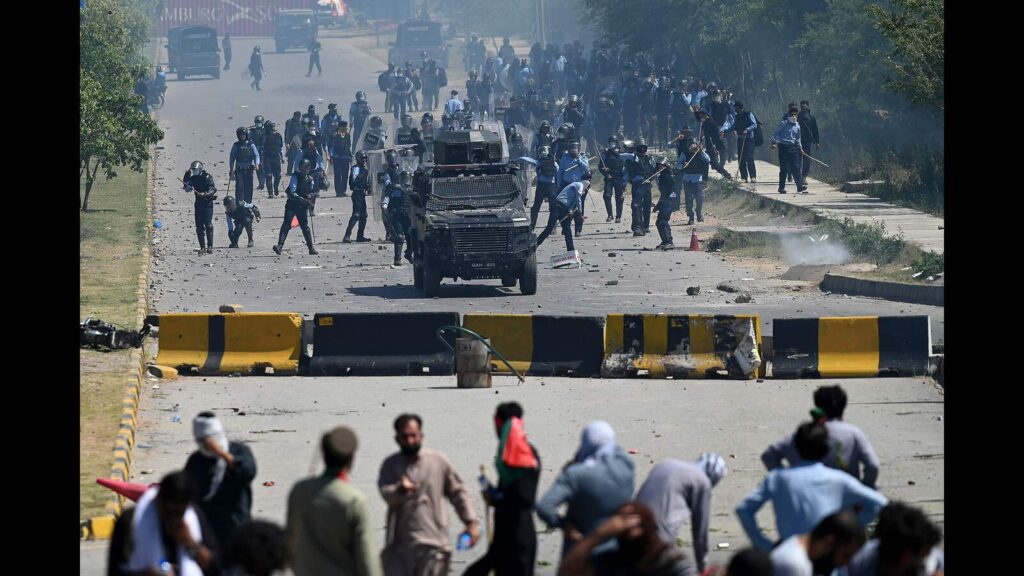The Pakistani military’s history of repeatedly meddling in domestic politics appears to have caught up with it, if the fallout of the arrest of former prime minister (PM) Imran Khan is anything to go by. Mr Khan was detained at a court complex in Islamabad with the help of a paramilitary force led by Pakistan Army officers, in connection with a corruption case. The dramatic operation unleashed protests that convulsed Pakistan as hundreds of Mr Khan’s supporters broke into the compound of the General Headquarters in Rawalpindi and the corps commander’s residence in Lahore. These unprecedented scenes of anger against the military underlined that differences between Mr Khan’s Pakistan Tehreek-e-Insaf (PTI) and the de facto power arbiter in the country have crossed the point of no return.
Ironically, this break comes just five years after Mr Khan was propelled to power by the army’s support and backroom machinations. While in power, Mr Khan often spoke of how the civilian government and the army were on the same page, creating the potential for tackling Pakistan’s problems. But the army became wary of Mr Khan as he sought to interfere in the posting of senior generals and secretly hobnobbed with some officers to retain his grip on power. Both the parliamentary vote of confidence that ousted Mr Khan from power a year ago and the emergence of a rickety coalition government led by Shehbaz Sharif would not have happened without the go-ahead from the military. Relations finally nosedived with Mr Khan’s repeated public potshots at the military and repeated allegations that the military wanted him dead.
The army faces a stark choice. Most analysts believe the days when generals such as Zia-ul-Haq and Pervez Musharraf removed civilian governments are over, and the military has shifted to a role where it can manage the government by remote control. However, the army’s deepening unpopularity and experience with Mr Khan indicate that a hybrid regime is unworkable. Since the days of General Ashfaq Pervez Kayani, who replaced Musharraf, several Pakistan Army chiefs have spoken of steering clear in politics. But with its interests and influence over Pakistan’s destiny at stake, it will be tough for the current chief, General Asim Munir to walk the talk on this promise. In a country wrecked by a floundering economy and escalating terror strikes from the Tehreek-e-Taliban Pakistan, his next steps will be key.

